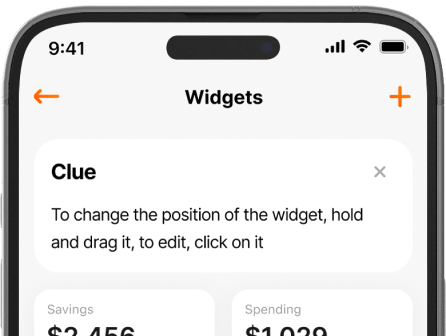Two Parts Of Life
Life is usually divided into two parts: personal life and professional life.
Personal life includes relationships with family, friends, and close ones, hobbies, interests, and free-time activities. This is a part of life where people want to love and be loved for who they are, take care of their close ones, and feel cared for in return, enjoy life and the world around them.
Professional life is work. It includes occupation, relationships with colleagues, career development, and professional goals. In this part of life, people want to realize their potential, earn recognition and respect, create something useful for society, and get rewarded for that.
Many people think that since they get money from doing professional activities, their personal finances belong to the professional part of their lives. The more they work, the better their skills are, the more they achieve in their career, and the bigger their income gets. It all seems logical and right. But is it really so? Let’s figure it out.
Sources Of Income
Let’s take a look at a guy named Nick and his sources of income. Nick is a programmer. He gets a salary. And this is a source of income from his professional life. Nick’s grandmother dies and leaves him a $1 million inheritance. This income has nothing to do with his professional life. One would rather say it has more to do with his personal life. Nick buys an apartment and starts renting it out. He also buys stocks and starts receiving dividends. A year later he sells the stocks and gets a profit. This is where the whole thing gets even more complicated: Nick is making money but doesn’t even invest his time in it or work.
As you can see, the situation with Nick’s side income is not as clear-cut as with his salary. And the rent, dividends, and income from stocks have nothing to do with his professional and personal lives.
Let’s look at Nick’s sources of income and analyze them:
- Salary. Nick sells his time, and the employer buys it. The higher the qualification and the better the skills Nick has, the more expensive his time is. The source of income in this case is Nick’s professional life.
- Inheritance or gifts. In this case, the source of income is Nick’s personal life. It entirely depends on how wealthy his close ones are.
- Rent, income from securities. This is investment income. You can get it, or you can lose the money you bought the assets with. It all follows the rules of risk/return: the higher the risk of losing money, the higher the expected return. In the case of these sources of income, it doesn’t matter how much time you’ve spent searching for assets — 1 year or 1 minute. What matters is how you estimate the expected return and how successfully you manage the risk. These sources don’t belong to any of the abovementioned parts of life.
As you can see from the example, trying to reduce the income only to the professional sphere is not the right thing to do. That way you lose sight of your personal life sources and investments, risk losing a comprehensive view of all of your sources and don’t give enough attention to their nature. Eventually, it can result in unwise or excessive spending or loss of money.
What Do We Spend Money On?
Many people tend not to think about which area of their lives they spend most of their money on. Let’s look at expenses such as food, rent or mortgage, utilities, transportation, clothing, medicine, recreation, and entertainment. They are necessary for our livelihood and recreation and therefore belong to our personal lives.
However, this is not always the case. Although most of our money we spend on our personal lives, there are also expenses related to our professional lives. We pay for and buy various goods and services that help us in our professional lives like specialized literature, student loans, or course fees. This can also include buying things for work like a business suit, a briefcase, or even a laptop, or a smartphone.
If we don’t spend all of our income, we build savings and invest them in various assets or keep them in a bank account.
To sum up, our money is distributed among our personal life, our professional life, and our investments.
Financial Life
But is it convenient to constantly analyze your personal finances in terms of different parts of life while also keeping track of investments? Before you answer that question, let’s see how businesses do it.
Let’s take a look at a computer company Nick works in. It has three main fields of activity:
- Production, where Nick and his coworkers create programs.
- HR management, where the company hires new employees, trains and reimburses them, and organizes corporate events and parties.
- Financing, where the company keeps track of income and expenses, investment, and taxes.
As you can see, Nick’s company also has two fields of activity that are similar to two parts of our life:
- Production = Professional life.
- HR management = Personal life.
But the company also has a third field of activity — financing, and for good reason. Such an approach helps the company to account for all cash flows, analyze results, set goals, and make forecasts. It’s convenient and efficient to keep and manage all finances in one place.
Therefore, we suggest that you move all of your finances into a separate part of your life — financial life.
Now everything has fallen into place. In our personal lives, we plan our vacations and meetings with relatives and friends, pay for our hobbies, and buy important stuff like houses, cars, etc. In our professional life, we search for our vocation, plan our careers, study, and increase our earnings. And in our financial life, we analyze all financial information from our personal and professional lives, draw conclusions and make decisions to reduce or increase consumption in our personal life, increase income from our professional life, or invest.
So the financial part of your life is an important component that determines what you do in the other two parts of your life. All three parts influence each other, and you can live a successful life only after you put all of them in order.
If you want to take your financial life under control and manage it effectively — try Finmatex app. It’s a smart personal money assistant that will give you a full picture of your financial situation, help you learn how to budget, assist you in setting and achieving your goals, and more. Download it on Google Play or App Store and start a free 1-week trial.








